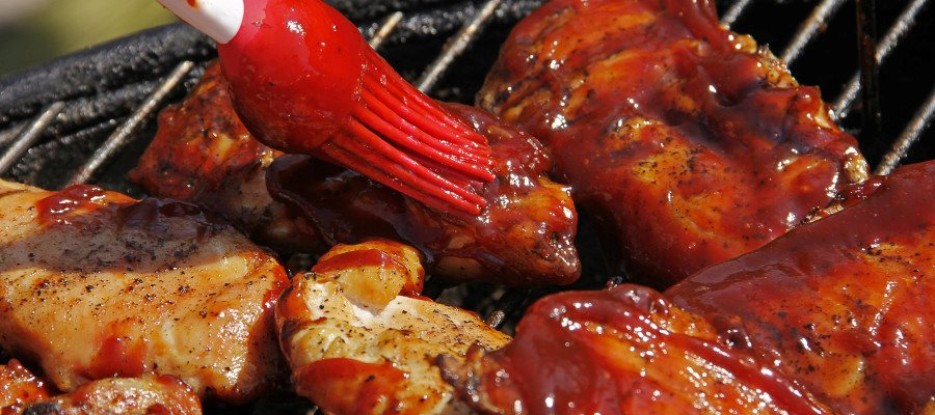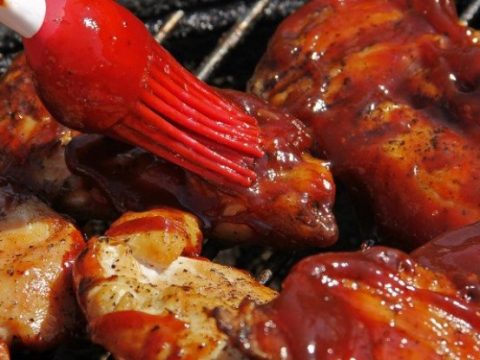Beginner’s Guide to the Perfect BBQ – Part 1
It’s no surprise that we love barbecuing. We, the Romanians. We, the food lovers. We, the KitchenShop team. We love the BBQ not only for the simple, delicious food it offers but also for the social experience. Because food tastes twice as good when shared with loved ones. So let’s get straight to the grill!
In This Guide:
- The differences between charcoal, gas, and electric grills
- Essential BBQ tools every beginner needs
- Tips and expert advice for a perfect barbecue
Charcoal vs. Gas vs. Electric Grills
Charcoal or Wood-Fired Grill
Flavor
Widely considered the most flavorful. The smoke from charcoal—and especially from wood—infuses meats and vegetables with an unmatched aroma, especially when fat drips onto the coals and vaporizes into the food. If flavor is your top priority, go for charcoal.
Effort
Great flavor requires effort. From buying and storing fuel, to lighting the grill (which takes some skill and ~30 minutes), to cleaning up charred residue. You can’t set a precise temperature, so it’s harder for beginners to manage heat and avoid burning food.
Health
Charcoal grilling is ancient (400,000 years old!) but controversial. While it renders meat low in fat by melting away grease, the smoke can create harmful compounds. Experts warn about carcinogenic burnt crusts and advise cooking at lower temperatures for longer periods.
Price
Charcoal grills are the most affordable—unless you opt for large brick or multi-functional models.
Portability
Strictly for outdoor use. Portability depends on size. Smaller models can be carried around; larger ones stay put.
Gas Grill
Flavor
It doesn’t match the smoky taste of charcoal, but gas burners still brown food nicely and give a light grilled flavor.
Effort
Much easier to use. Preheats in about 10 minutes. You can adjust the heat precisely and stop grilling anytime. Some models come with rotisseries, storage, or even smokers. However, they contain more components that may need repairs over time, which could become costly.
Health
Gas grilling is healthier than charcoal. No toxic smoke, and precise temperature control minimizes the risk of burning meat.
Price
More expensive than charcoal. Price depends on features, but gas grills start higher overall.
Portability
Can run on propane (from a tank) or natural gas (from your home line). Propane offers limited portability due to the heavy tank; natural gas grills are fixed in place.
CAUTION: Always follow the user manual to avoid gas leaks or hazards when using a gas-powered grill.
Electric Grill
Flavor
This grill type doesn’t provide the traditional smoky flavor—no open flame, no smoke. Still, it performs well in all other categories.
Effort
5 out of 5 stars for convenience. Just plug it in and start cooking in minutes. Perfect for beginners, busy people, or those who don’t like traditional cooking.
Health
No direct flame = no smoke = no toxins. Full temperature control makes it the safest, healthiest, and most eco-friendly grill option.
Price
Less expensive than gas but more than basic charcoal. Small countertop models are very affordable. Larger stand-up electric grills are ideal for garden parties and come with accessories like storage trays.
Portability
Can be used safely indoors—even in apartments or balconies. Lightweight and easy to transport, as long as there’s a power outlet nearby.
Coming Next in Part 2:
- Must-have BBQ tools and accessories
- Pro grilling tips for perfect results


